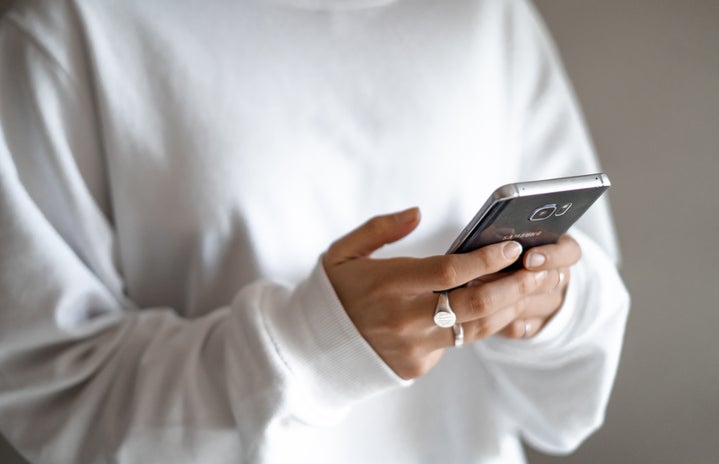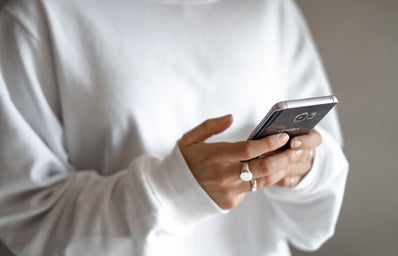When it was announced last semester that all Kenyon freshmen would be working from home, I thought that I was prepared for the changes that it would create. I planned to set new study habits, work on creating some healthy meals, FaceTime and text with friends, and do some much-needed yoga and meditation. All of these plans were great, and as I’ve worked at putting them into action while spending this semester at home, I’ve learned a great deal of self-responsibility.
Yet, I was still feeling mentally exhausted. I blamed it on staying at home in general— after all, there was only so much that I could do. Then, while scrolling on my phone late at night with the idea of time for myself, I realized something: social media felt draining for me. I only meant to take a scroll through Instagram to look at some of my friends’ and favorite celebrities’ feed. However, what I saw appeared to make me feel worse about staying at home. Here I was, curled up in my bed at home like always, and there they were, traveling, eating gourmet meals, and spending time with friends. Additionally, I was witnessing the joyous feed of students back on campus. Why was I forcing myself to witness them participating in what I couldn’t if it was only negatively impacting me? This was what I asked myself.

Immediately after having this thought, I went to my settings and put a limitation on Instagram. I declared that I would only be allowed five minutes each day on Instagram. In having that limitation, I would be more inclined to only look at the feed that was especially meaningful to me, such as that of close friends, and I would not get caught up in witnessing the glamorous-appearing lives of those I hardly knew. I went to bed hopeful that this new plan would help my mental health, and in the long run after a few weeks, it has.
During my first day of Instagram limitation, I had the antsy feeling that I needed to spend more time scrolling through it as if there were things I would miss out on. I ended up selecting the option to spend another minute on when my time was up. As the week went on, though, I found that this feeling went away. I realized that I really wasn’t missing out on anything. I began to become proud of the self-control that I established and realized that I was comparing myself to others less. In limiting my social media usage, I never stopped and decided to longingly wonder what others were up to, assuming that they were spending their time so much better than me. I acknowledged that I had my own life to focus on, and wanted to form greater connections with my family and friends beyond the photos that we share. Ultimately, I found a new habit that has benefited me more than I expected.

I think that I was worried about how much my limitation would impact me because of my hesitation to use the feature of controlling my time on apps in settings. After all, it seemed like something parental, meant for children to be monitored. I wondered if what I was doing was ridiculous. It wasn’t. In fact, I think that the setting to control time spent on specific apps is an underrated tool to be utilized. I’m always setting reminders on my phone, so why not set one on screen time in a mentally healthy way? I find that the feature is beneficial not only because it reminds me how much time I’ve spent on Instagram, but because it also closes down the app for me. Sometimes we need that extra push.
The pandemic has placed us all in different states of mental health. Even before the pandemic, social media had a vast influence on my life. It in no way deserves to do so in such a time of hardship. Staying home when you can is so important right now, and what I noticed on Instagram seemed to betray that mindset. The posts motivated me to want to see people and travel, earning something to post about. I’m sure that many of you have felt the same. But that post isn’t worth it for you or your followers. I believe that the easiest way to limit these urges and feel better about yourself during this time is to reduce your social media usage. You don’t have to entirely cut it out of your life, but for students working at home like me, a basic limitation can make a positive impact on your whole remote experience.


